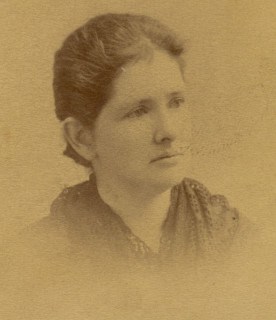Laura Elizabeth Howe Richards was an American writer of the late 19th century who published more than 90 books. Born on February 27, 1850, she is best known for the nonsense poems she created for children to enjoy, such as “Eletelephony.”
Laura Richards’ parents were famous before she was born. Her father was Samuel Gridley Howe, who ran the Perkins Institute for the Blind where Helen Keller and Laura Bridgman were educated. (In fact, he named his own daughter after Laura Bridgman.) Her mother, Julia Ward Howe, wrote the words to a famous song called “The Battle Hymn of the Republic.” When Laura Richards grew up, she and her sister wrote a biography of their mother that won a Pulitzer Prize.
In addition to writing many poems and works of fiction, Richards was a philanthropist. She was very concerned about finding ways to help the people in the town where she lived with her husband. For example, Richards helped to change the practice of making children work at difficult jobs as if they were adults, which was common at the time.
One of Richards’s best books of nonsense poetry is called Tirra Lirra. The poems in this book use techniques like rhythm, alliteration, and startling imagery to tell an imaginative story.
Here is the poem “Eletelephony,” in which Richards uses several funny and surprising variations on the word “elephant.” This technique gives us the impression that the poet has gotten all tangled up in her words, just like the elephant gets his trunk tangled in the telephone—or was it a telephunk?
Eletelephony
Once there was an elephant,
Who tried to use the telephant—
No! No! I mean an elephone
Who tried to use the telephone—
(Dear me! I am not certain quite
That even now I’ve got it right.)
Howe’er it was, he got his trunk
Entangled in the telephunk;
The more he tried to get it free,
The louder buzzed the telephee—
(I fear I’d better drop the song
Of elephop and telephong!)






